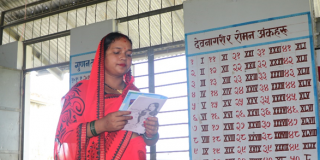
Dhanmati is a 29-year-old resident of Jaganathpur Rural Municipality in Nepal. Her work as a volunteer on VSO's ENGAGE project has changed attitudes to girls education in her community and helped girls to return to education. She firmly believes that education is the key to unlocking a better future and living a happy life.
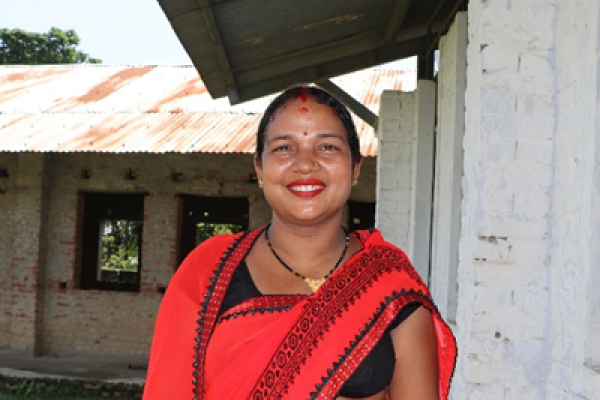
Dhanmati was married 11 years ago at the age of 18. Her grandmother desperately wanted to see Dhanmati get married before she died as she had critical health issues. Dhanmati fulfilled her grandmother’s last dream while in grade 8. She had a keen interest in learning and continued with her education until grade 10.
Her husband and in-laws supported her decision. Completing grade 10 was a huge achievement for her and she thought she had reached the pinnacle of her education, and this would be far enough in her life. Her focus then completely shifted to her family and her home where she became a full-time homemaker, having two sons and two daughters. Her mission in life was to care for her children, husband, and his family.
Although happy in her life, she still thought fondly about education and the power it had to change lives. One day, Dhanmati received information from the ward office about the Empowering a New Generation of Adolescent Girls with Education (ENGAGE) project.
The ENGAGE project was searching for qualified local women to recruit as Big Sisters to implement their effective peer-to-peer mentoring model, in which a big sister from the same community mentors and helps the primary actors. Dhanmati had always wanted to work in social services, supporting the community. She was excited at the chance when she found out that the big sisters would mentor girls who were deprived of formal education and create awareness about the importance of education in the community.
She thought this would be an opportunity for her to contribute to her community by sharing her knowledge and skills. Dhanmati was selected as one of the Big Sisters and she has to date, dedicated more than three and half years to the project.
The experience she gained in the community led her to identify several factors impacting girls’ education. She says:
Due to the lack of education, poverty, child marriage, child labour, and superstitious beliefs like girls are made for household chores, they will go to their husband’s house in sometimes, and there is no benefit of educating girls, many girls of our community are out of school or had dropped out.”
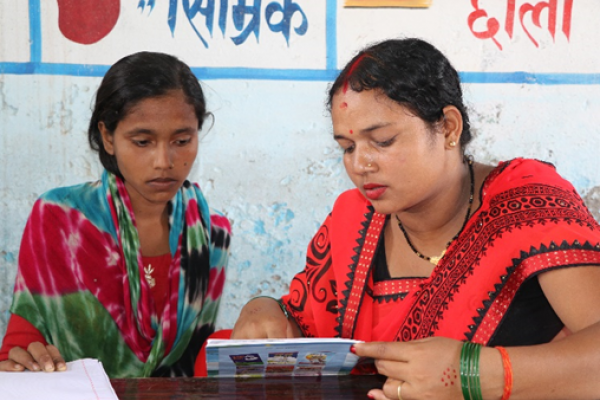
As a volunteer big sister Dhanmati mentored five little sisters. She taught them subjects like English, Nepali, mathematics for one year in bridge classes to improve their literacy and numeracy skills. “The girls had forgotten how to read and write as they dropped out in grade two and three, but by taking the bridge class, they re-learned to read, write and do calculations and gained their confidence back.”
After completing the bridge classes three of her little sisters joined the livelihood program while the two others chose to continue with their education. Her journey as a volunteer with VSO was not a straightforward, comfortable ride. She faced a lot of criticism in the early days. Parents of primary actors adamantly opposed to sending their girls to study in the bridge class. Most of the community criticised big sisters for spreading false news about education and believed education was of no use.
They alleged that big sisters wanted to misuse their little sisters just to earn an amount of money for themselves. Even though these criticisms were aimed at Dhanmati’s work, she did not give up.
“Despite all the allegations I went to the primary actors' houses regularly - sometimes three to four times a day - just to make them aware about the importance of education and convinced them to send their daughters to the bridge class.” After a long period of time, the parents were convinced and approved for their girls to join the class.
However, Dhanmati still had to call the little sisters two-to-three times a day just to make sure that they attended the class. In contrast, these days, the girls show up just with one phone call, they come wherever and whenever Dhanmati calls.
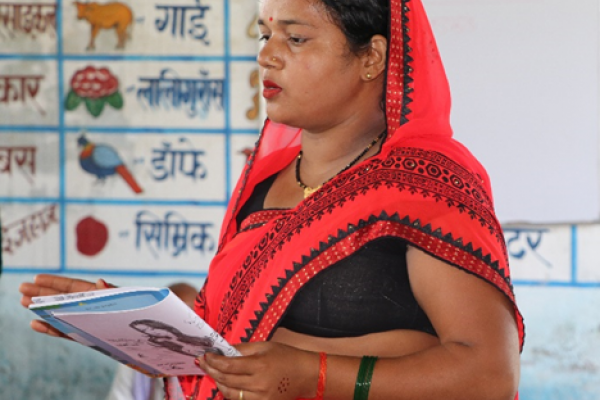
In Pidariguthi, there is only a primary school. The girls who intend to continue their education must travel 6 kilometres to the nearest secondary school. Parents were worried that the girls would face violence on the way to school and hesitated to send their adolescent girls to a school so far away. Despite Dhanmati trying hard to persuade the parents to enrol little sisters to secondary level, no one agreed.
Dhanmati was disappointed as this was the time for the girls to progress and get results for all her hard work. At his point she felt pressurised, lost all hope, and wanted to resign. With the motivation from the Dibya Yuwa Club team and the realisation that change takes time, she decided to continue her work.
She slowly started convincing the parents, showing them the importance of the certificate given by school. She told the parents that if they do not send the girls to school there will be no evidence that they have studied and all their efforts will be a complete waste of time, to which they finally agreed.
Dhanmati feels proud to see the changes in her community. According to her, cases of child marriage and violence have decreased massively from before. People in her community who are not part of the ENGAGE project have also started to send their daughters to school. Dhanmati herself has helped ten other community girls to be enrolled in school. She now feels much more empowered than before.
ENGAGE has also helped me develop my knowledge on disability, gender and violence, child protection and safeguarding, inclusive education, and mentoring approaches. It gave me an opportunity to share my knowledge with my children, family, little sisters, and the people of my community, which helped my family as well as my community to progress to a new level.”
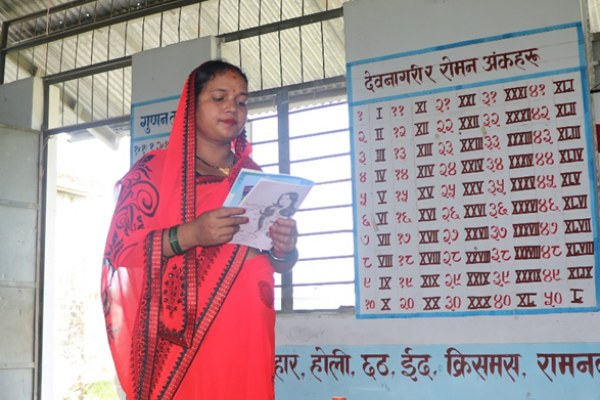
Dhanmati happily shared that personally she got rid of the tradition of Ghungat Pratha, a practice in which a woman must wear her shawl on her head in front of her husband, in-laws and other relatives to show respect. Following the ENGAGE project, she slowly started to remove the shawl, a change that has been accepted by her family.
She has also been taking the leadership position in the local Learning Hub. Dhamati says, “I first was interested when I heard the concept of learning hubs because it is a platform where our little sisters could come to learn, share their experiences and play, while big sisters like me could also use it to grow our knowledge by reading the books.”
She is a general member of the learning hub, and her roles and responsibilities are to tutor girls and help them solve their problems. Not only this, but she is also a member of Girls and Inclusive Education Network (GIEN). She campaigns and advocates about the importance of education, Complaint Response Mechanism (CRM) and about different forms of violence that happen in society like school violence, gender-based violence and child protection.
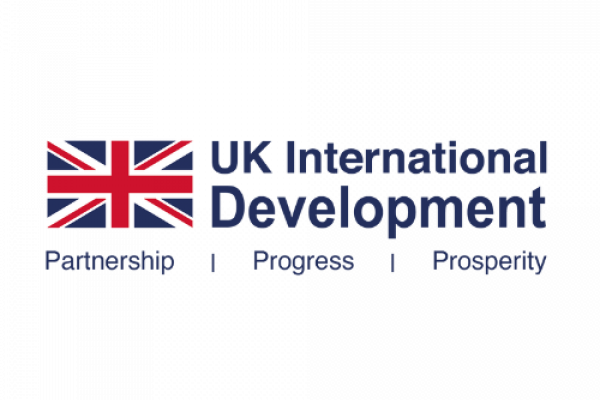
GIEN do local performances on topics like child marriage and its effects, domestic violence, girls, and child labour, to raise awareness around these issues. They also perform parental counselling every three months. She is glad that she could be part of bringing this change in her community. Now her goal in life is to work in a government office or work on other projects like ENGAGE to change the lives of people in her community.
Dhanmati is a perfect example of a progressive woman in the 21st century who aims to grow and create a positive impact in her community. She says, “I thought of continuing my higher education only after I started to work for ENGAGE and saw the progress of my little sisters. I realised education can create a huge change in someones life and I want to thank the ENGAGE project wholeheartedly.”
This project is implemented by VSO in consortium partnership with Handicap International and implementing partnership with Dibya Yuwa Club (DYC). Funded by the FCDO which supported the flagship Girls’ Education Challenge Programme’s Leave No Girls Behind (LNGB).
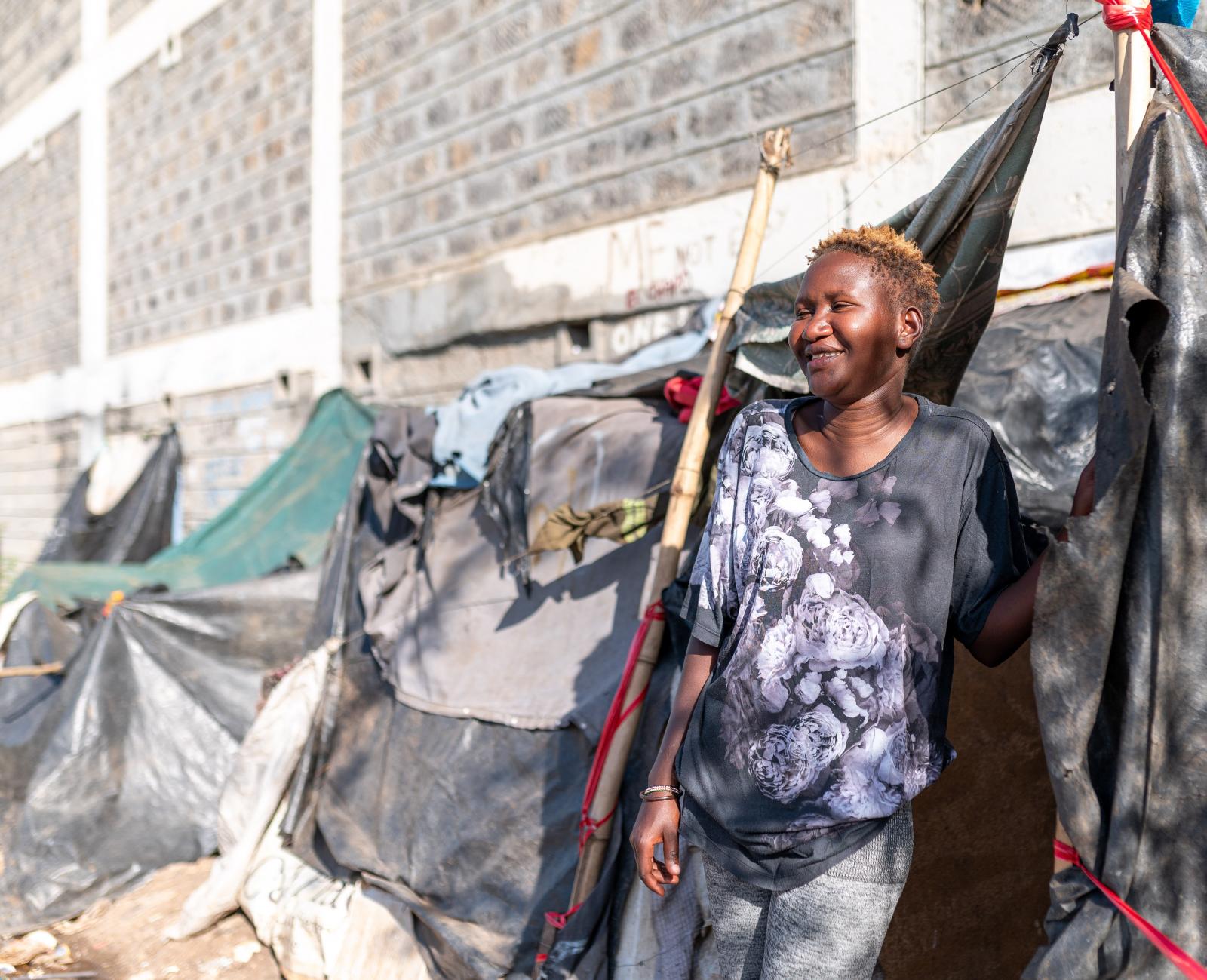
Support us with a donation
Read more

A ripple of change: how VSO volunteers are transforming communities
Every act of volunteering begins with a choice — a decision to act out of a desire to make a difference. Across the world, VSO volunteers are proving that one spark of action can ignite something much bigger.

The two volunteers empowering girls and young women in Mozambique
Nelma and Carmirene and are two volunteers working on VSO's EAGLE project in Mozambique. For Nelma and Carmirene, education is not just about school, it is about meeting people where they are and using the right tools to challenging harmful norms. Here are their stories.
Opening doors to safety, education, and a brighter future
For girls in Karamoja, the poorest region in Uganda, being forced into early motherhood is all too common. This Christmas, you can open the doors to Safety, Education, and a Brighter Future.
